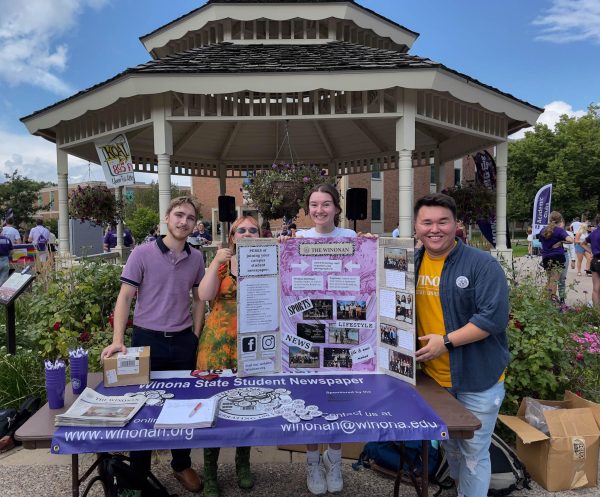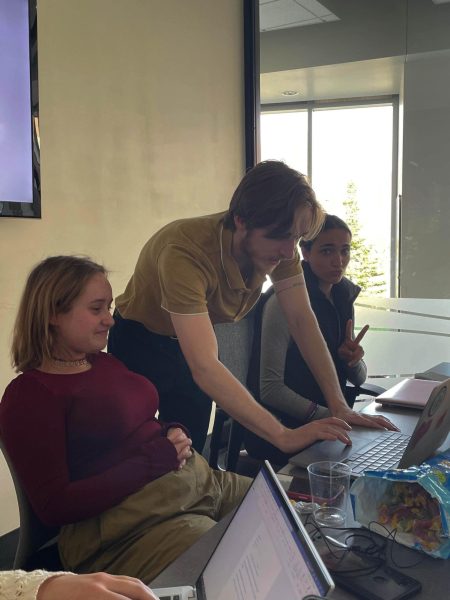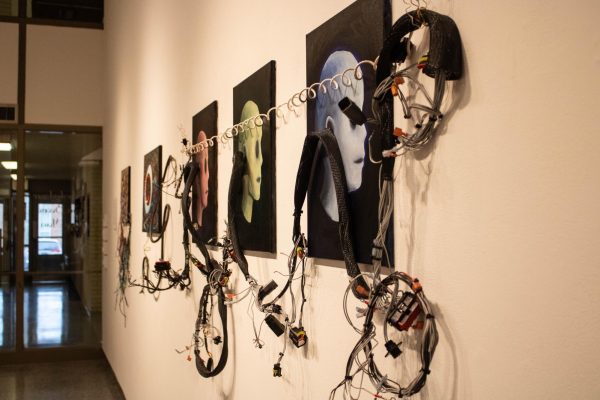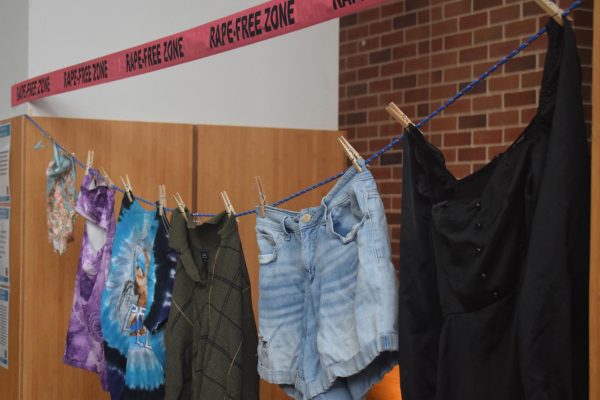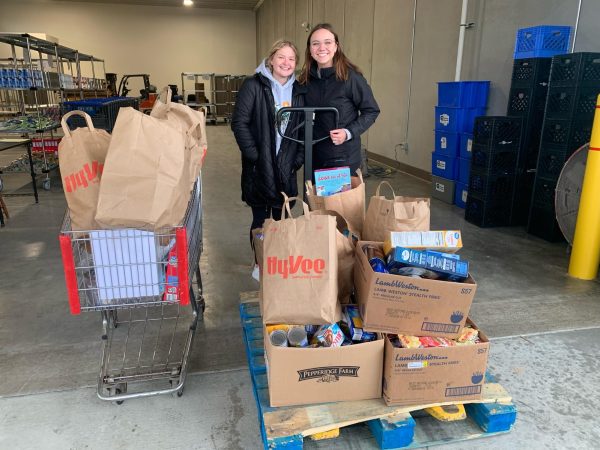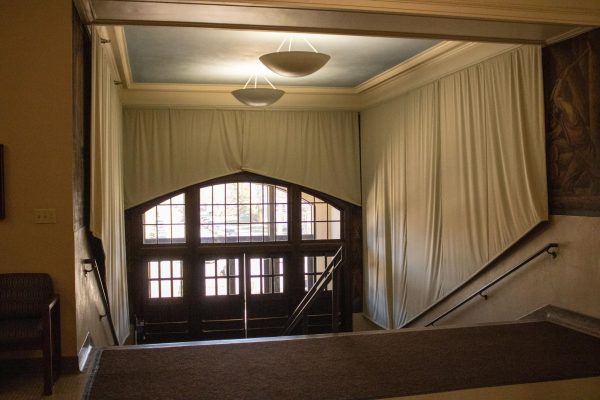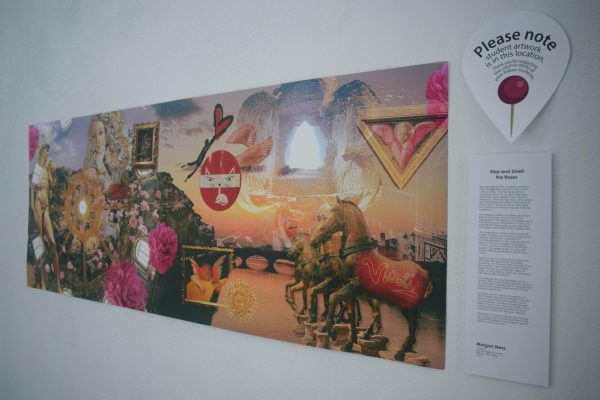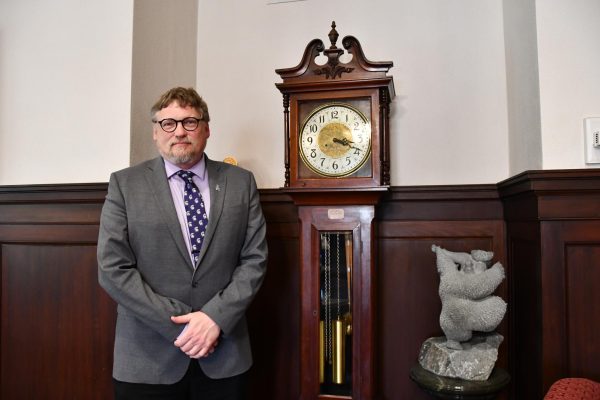Resident assistants adapt to COVID-19
February 24, 2021
Resident assistants at Winona State University residence halls are adapting to new COVID-19 guidelines.
Activities are dependent on campus COVID status and take place in a variety of formats.
Depending on campus COVID status, halls may limit guests and restrict outside visitors, and restrict resident assistants to virtual or asynchronous. Regardless of COVID status, events must maintain social distancing.
Resident assistants hold two sessions with a maximum capacity of 10 at each event with some activities held online to accommodate quarantines.
West Campus cancelled house competitions this year, but points are still awarded through smaller activities and virtual
events’ attendance.
When preparing for events, resident assistants must respect room capacity and have
food prepackaged.
Taylor Young, a second-year student double majoring in psychology and communication studies, is completing her first year as a resident assistant at Lourdes Hall and said each resident assistant is a role model for
their community.
“As an RA, we really try to do our best to follow all safety guidelines, as we know that residents often look to their RA as an example to follow,” Young said. “This means following the guest policies, practicing COVID safe behaviors, and always relaying those rules to residents.”
Young changed her events to be grab-and-go or drive-thru to encourage more resident participation, and at least a few residents now attend.
Young said attendance improved over the school year.
“I am so grateful to have such an involved community,” Young said. “In the beginning of the school year when no one would show up though, I would often door-knock to see if any residents were in their rooms and interested in attending the event.”
Haley Ronayne, a second-year student majoring in clinical exercise science, is completing her first year as a resident assistant in Maria Hall. Ronayne said she advertises activities around her residents’ most liked events.
“I typically advertise as much as I can by creating posters, sending floor emails, door knocking and getting the word out around the building,” Ronayne said. “I try to find out what people on my floor enjoy, and this year I found they really like to craft. I have a lot of events related to making
something fun!”
Meg Peine, a fourth-year student studying Spanish and elementary education, is completing her second year as a resident assistant in Richards Hall. Peine’s “Send a Crush to your Crush!” was her most successful event so far, and it allowed residents to send Valentine’s Crush sodas to other people in the building.
“Food! Food gets people so, so much!” Peine said.
However, the resident assistants struggle to get students excited outside of Zoom classes.
Peine said she has noticed it is easier as a student to stay in their rooms, especially while following social distancing rules, and the process of meeting new people and getting engaged is challenging.
Resident assistants work to bridge the gap.
“I became an RA because I really had a tough time connecting to the community my first semester of college,” Young said. “I wanted to be a resource for other students having that struggle!”
Having fewer residents this year makes it easier for resident assistants to connect with their floor. There is more time to establish a trusting relationship with the resident assistants.
“If a friend only talked to you when they needed something and had actually no invested interest in you, would you still be their friend? Probably not,” Peine said. “I strive to treat residents in the same manner– people don’t care how much you know until they know how much you care.”
Along with fewer residents, COVID encouraged cleaner environments.
“We have had a very healthy floor because we are very good at sanitizing and avoiding any illnesses,” Ronayne said.
Some resident assistant’s say they will continue some of the event modification techniques they learned during the pandemic even when the virus slows.
“I would probably continue to do a grab-and-go option at in-person events for residents who were interested in being involved but did not have much time to attend the event,” Young said.
Many resident assistants view the role as a large responsibility reaping many benefits, also viewing themselves as examples of dedication and leadership.
“RAs are a living, breathing human directory and are knowledgeable of campus resources, organizations, clubs and teams,” Peine said.




























































